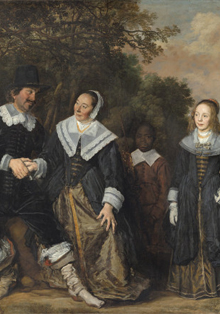Until 20 October, the Museo Nacional Thyssen-Bornemisza presents Colonial Memory in the Thyssen-Bornemisza Collections, an exhibition that addresses the role of museums and the works they house in the context of the creation and legitimisation of the Eurocentric narrative.
This exhibition is the result of the possible re-readings of the Thyssen collections (some of which have already been presented in exhibitions such as American Art) that intersect with the museum’s task of renovation and updating in relation to the challenges of 21st century society, such as the climate crisis, gender equality, migrations or, in this case, decolonisation.
This work has been materialising for years in studies, talks, seminars, publications, performances, tours, educational activities and, of course, exhibitions, always guided by the museum’s commitment to a varied programme, aimed at all audiences, and with a commitment to “the diversity of interpretations of its collections, open to different currents of thought and perceptions”, according to the museum.
Through 58 works from the museum’s historical collections (permanent collection and the Carmen Thyssen Collection), as well as 17 contemporary pieces from the TBA21 collection, the exhibition highlights the consequences of colonialism that began in the 16th century and its presence in Western iconography through idyllic and exoticising images that mask colonial inequality and violence.







